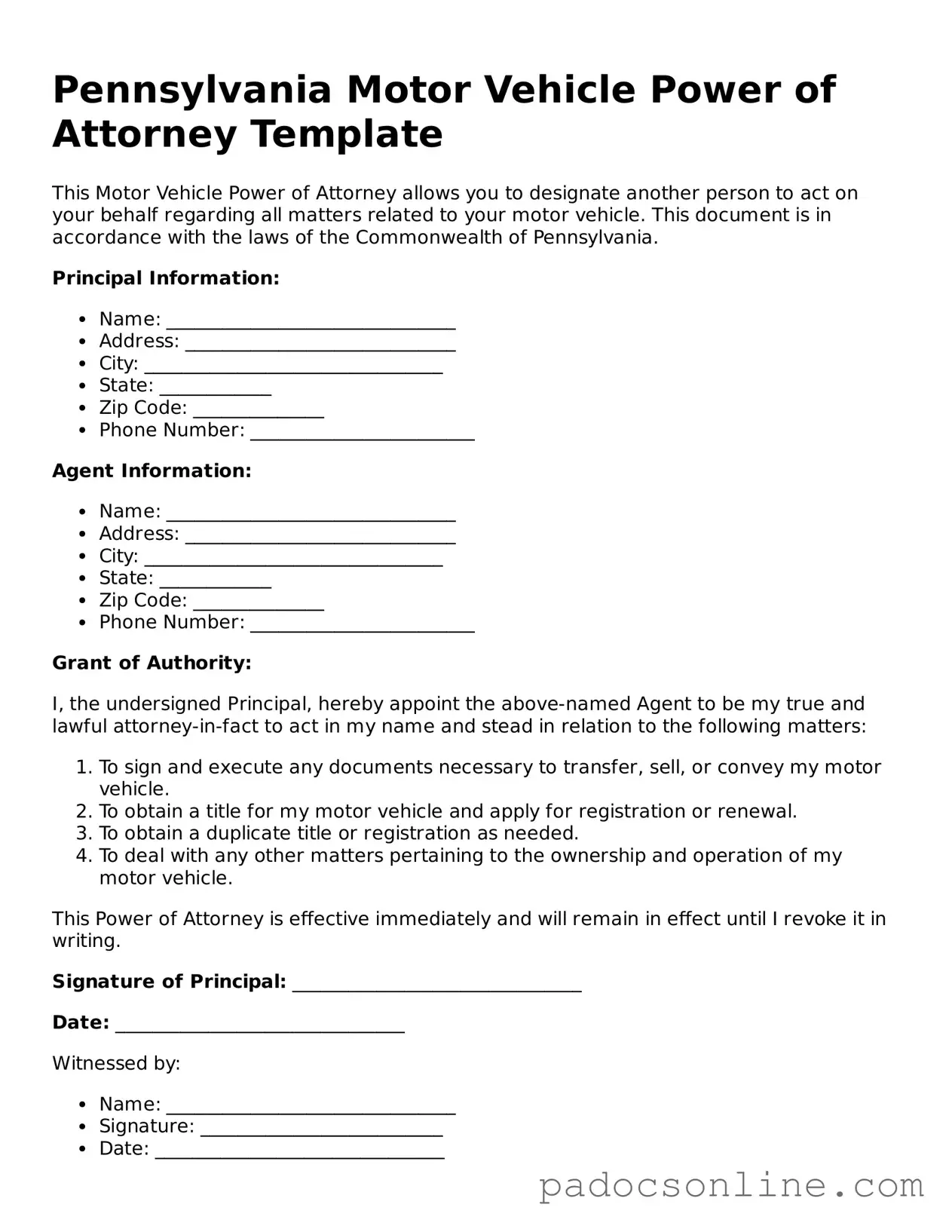Filling out the Pennsylvania Motor Vehicle Power of Attorney form can be straightforward, but many people make common mistakes that can lead to complications. One frequent error is failing to provide accurate information. This includes not using the correct names, addresses, or vehicle details. Such inaccuracies can invalidate the form or cause delays in processing.
Another mistake is neglecting to sign the document. Signatures are crucial for the form's legitimacy. Without a signature, the Power of Attorney will not be recognized, leaving the designated agent without authority to act on behalf of the principal.
People often overlook the need for witnesses or notarization. In Pennsylvania, certain Power of Attorney documents require a witness or a notary public to validate the signature. Skipping this step can render the form ineffective, as it may not meet legal requirements.
Additionally, individuals sometimes fail to specify the powers granted to the agent. A vague description can lead to confusion about what the agent is allowed to do. It is essential to clearly outline the specific powers, such as transferring titles or registering vehicles, to avoid misunderstandings later.
Another common error involves not updating the form when necessary. Life circumstances change, and so do the details of vehicle ownership. Failing to revise the Power of Attorney to reflect current information can create legal issues down the line.
Some people mistakenly believe that a Power of Attorney is a one-time document. However, it can be revoked or modified as needed. Not understanding this can lead to confusion about who has the authority to act on behalf of the principal.
Finally, individuals may not keep a copy of the completed form. It is crucial to retain a copy for personal records and to provide a copy to the designated agent. Without this, the agent may face difficulties when attempting to exercise the powers granted.
